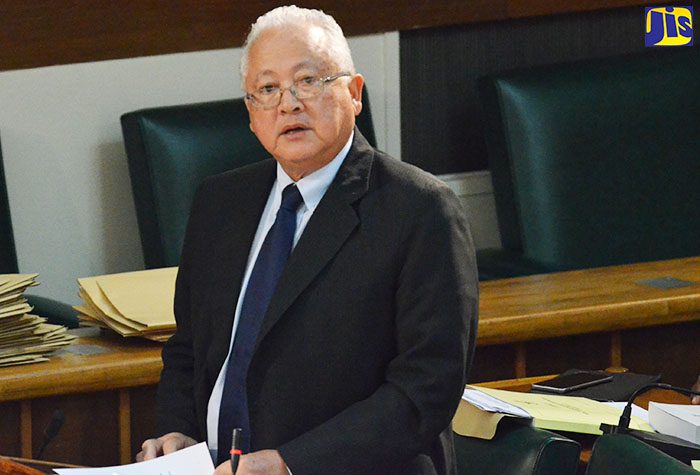Jamaica to amend Juror Act to align closely with that of the United Kingdom
In light of the case of Adidja Palmer, also known as Vybz Kartel and his co-accused being thrown out by the Privy Council in the UK, Justice minister, Delroy Chuck, says the government is moving expeditiously to craft new legislation to address the issue of jury misconduct.

Speaking to Nationwide News, Justice minister, Delroy Chuck said the UK legislation that was enacted about 2002 had just came to his attention.
Crown Court trial without a jury in the UK is permitted in cases of suspected jury tampering where there is evidence of a “real and present danger” and, despite the possibility of police protection, there is a substantial likelihood of tampering, and a trial without a jury is in the interests of justice. The first such prosecution application was made in February 2008. The first criminal trial in a crown court without a jury was approved in 2009. There are also provisions under the Domestic Violence, Crime and Victims Act 2004, ss.17–20 to try defendants accused of domestic violence on sample counts and, on conviction, for the remainder of the counts to be tried by a judge alone. These provisions came into force on 8 January 2007.

The Privy Council cited jury tampering as the primary reason for its decision.
The Privy Council underscored that upon receiving information concerning the attempted bribery of a juror to deliver a verdict in Kartel’s favor, it was incumbent upon the presiding judge to address this matter forthwith such as to inquire into allegation of jury misconduct. Additionally, the privy court asserted that the trial judge departed from standard practice, putting undue pressure on the jurors to come to a verdict so late in the day and using telecommunication data that was acquired in breach of the communication act.
In small countries such as Jamaica whereby corruption is so rampant, it is important to sequester the Jury in order to have a fair trial or one that is affected by outside influences.
Sequestering a jury is the process of isolating them from the public and press during a trial to protect them from outside influences and ensure a fair trial. During sequestration, jurors are often put in a hotel, where they may not be influenced by the opinions of journalists, friends, and family. They may also be prohibited from watching television, reading newspapers, using social media, and discussing the case with anyone except for their fellow jurors.
The case is set to return to the Jamaican Court of Appeal for determination of a retrial. Minister Chuck says the drafting of the new legislation is a top priority.
